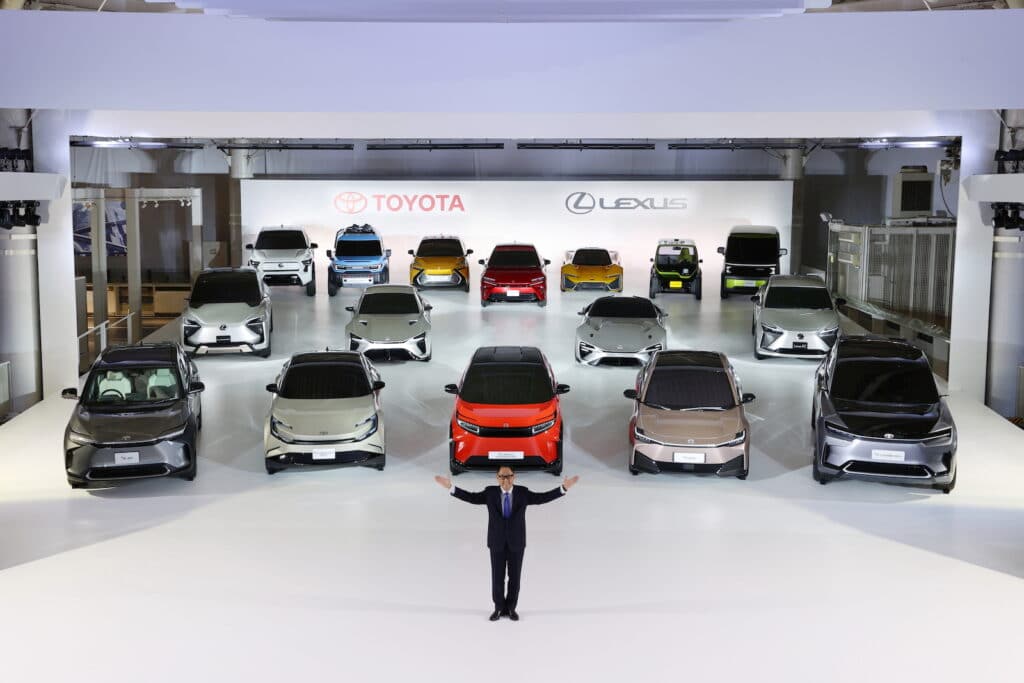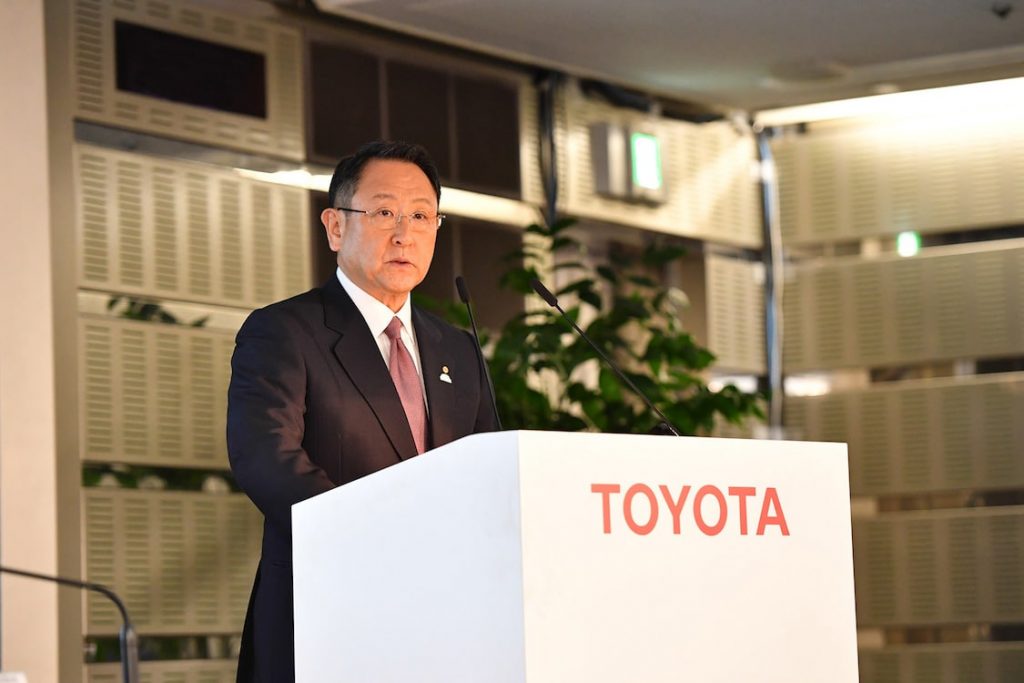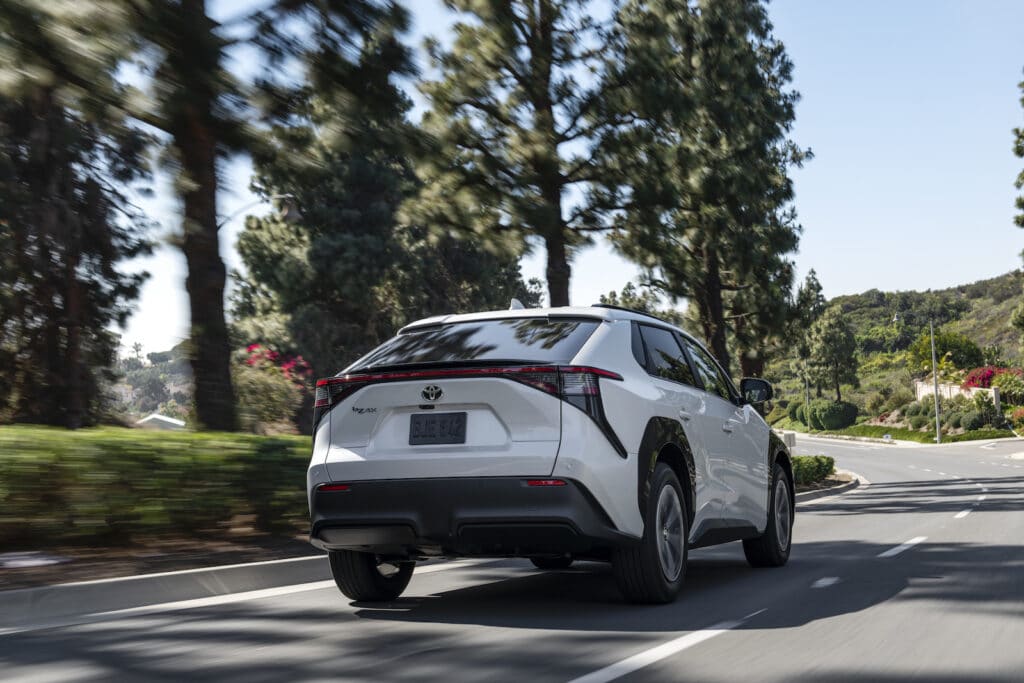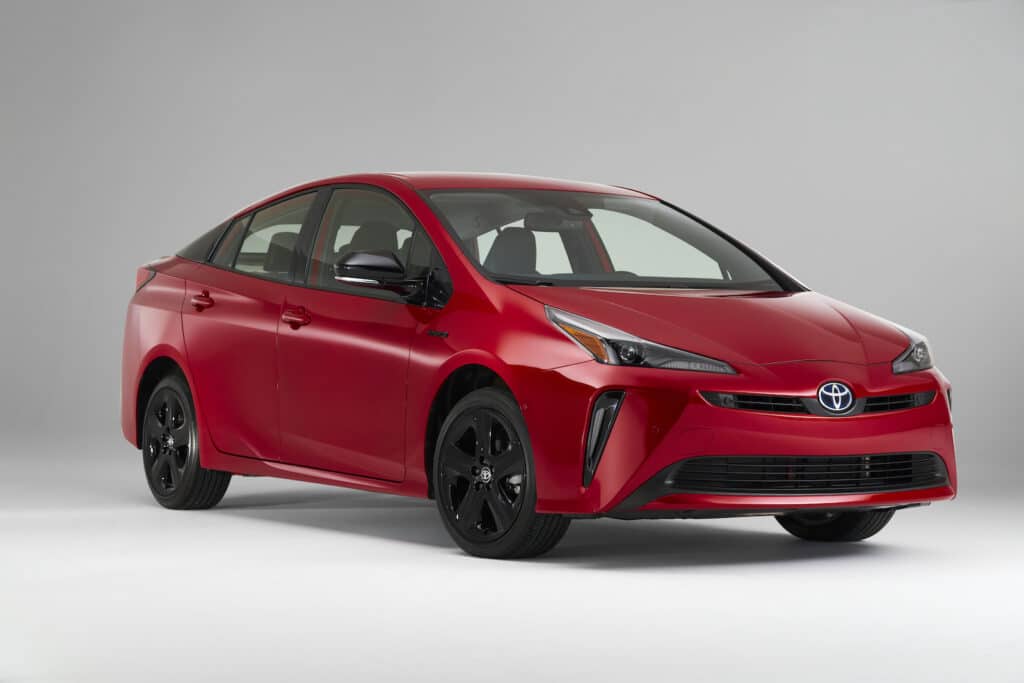Once the darling of the “green” community, Toyota today finds itself under withering fire for its reluctance to embrace battery-electric vehicles in favor of conventional and plug-in hybrids.

Now, the automaker is rethinking its strategy, or so goes a report from Reuters. It says the Japanese giant has put on temporary hold the $38 billion EV rollout it announced last year as it rethinks its long-term approach to electrification.
Toyota currently is the world leader in production of gas-electric hybrids, such as its iconic Prius model. But even after announcing plans to bring 30 EVs to market last December, the automaker’s CEO Akio Toyoda remains one of the industry’s biggest skeptics of battery-electric technology. Critics contend that puts Toyota at a disadvantage compared with EV leader Tesla, as well as rivals like General Motors and Volkswagen which are accelerating their own electrification programs.
Meeting EV mandates will be “difficult”
As recently as late last month, Toyoda expressed his reluctance to go all-electric. It will be “difficult” to meet the increasingly stringent regulation calling for a shift to all-electric vehicles, the grandson of Toyota’s founder said during the annual gathering of U.S. dealers in Las Vegas. He continued outlining a strategy including a mix of EVs, plug-in and conventional hybrids and hydrogen fuel-cell vehicles.
But that approach has come under increasing fire. Among environmental groups, Greenpeace now ranks Toyota at the bottom of the automotive list when it comes to decarbonization efforts. It’s also taking heat from investors such as the $120 billion Nordic asset manager AP7. Even the Church of England, which holds $300 million in Toyota shares, has spoken out.

But there’s also a more practical reality. EV sales have been growing significantly faster than many skeptics had anticipated. In the U.S., all-electric models held barely a 1% share of the new vehicle market at the end of 2019. That surged to around 7% in August, with Cox Automotive reporting that sales increased 67% during the third quarter compared to July-September 2021.
Competition heats up
That’s only encouraged competitors to ramp up their EV rollout plans. GM has revealed an assortment of new models in recent months, including the GMC Sierra EV it debuted last week. It has publicly stated its plan to have 30 all-electric models on sale globally by 2025 but GM insiders report this number is likely to grow.
All told, several studies have indicated the auto industry will collectively invest more than $1 trillion in battery-electric vehicles by 2030.

The review of Toyota’s EV strategy is reportedly being led by former Chief Competitive Officer Shigeki Terashi. While he did not respond to a request for comment, Reuters quoted a close source at Toyota saying, “What’s driving Mr Terashi’s effort is the EV’s faster-than-anticipated takeoff and rapid-fire adoptions of cutting-edge innovations by Tesla and others.”
An awkward start
Toyota belatedly entered the EV market this year with its first long-range model, the bZ4X. The crossover has received mixed reviews but, during a March media drive, senior officials said they expected to score with buyers looking for the quality and reliability the brand is known for. Ironically, Toyota was forced to halt production in June due to a defect that could cause the EV’s wheels to fall off. It only resumed production last month. It’s unclear how that problem will impact the bZ4X long-term.
In December 2021, Toyoda held a widely viewed webcast outlining plans to introduce 30 all-electric models this decade, covering economy to luxury segments, and everything from small sports cars to big pickups. But the executive continued to stress the need for hybrids and fuel-cell options.

Where things may go now is far from certain. But, according to Reuters, an internal group is giving serious thought to its EV plans. Those 30 vehicles are reportedly on hold, at least temporarily. Why is uncertain but it could mean taking a new approach to the underlying platforms they will rely on, among other things.
The “resources to shift direction”
Reuters’ sources also suggested that Toyota may be looking at ways to enhance the production process to help make its EVs more affordable. That’s a critical challenge, experts like John Murphy have warned. The head of automotive research for Bank of America, Murphy said that EVs could make up anywhere from 10% to 20% of the U.S. market by 2025, depending upon how much more expensive they are compared to comparable gas models.
The possibility that Toyota might shift the direction of its EV program is not entirely surprising. Two senior sources told TheDetroitBureau.com earlier this year the automaker is closely watching what happens in the global market. “We’ve got the resources to shift direction and respond if it becomes obvious that EVs are going to take off,” one said in a background conversation.







